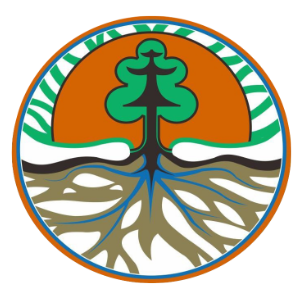
Teratological spores and pollen are widespread in sediments that record the PermianTriassic mass extinction. The malformations are thought to be the result of extreme environmental conditions at that time, but the mutagenic agents and the precise timing of the events remain unclear. We examined the abundance of teratological sporomorphs and metal concentrations in a Permian-Triassic tropical peatland succession of southwestern China. We find a significant peak of spore tetrads of lycopsid plants (as much as 19% of all sporomorphs) coeval with increases in Cu and Hg concentrations above the main terrestrial extinction interval, which marks the loss of Permian Gigantopteris forests, increased wildfire activity, and the disappearance of coal beds. Thus, in tropical peatlands, mutagenesis affected only surviving plants. Mutagenesis was likely caused by metal toxicity, linked to increased Hg and Cu loading, but was not itself a direct cause of the terrestrial crisis. content of coastal sediments, and frequent wildfires in terrestrial sections of southwestern China (Chu et al., 2020; Dal Corso et al., 2020). Some vegetation survived the collapse of the Permian terrestrial ecosystems in the tropics, as seen in southwestern China, where the luxuriant Permian Gigantopteris-dominated rainforests were replaced by herblands comprising almost monospecific lycophyte populations (Feng et al., 2020). Spore tetrads and pollen malformations have been observed globally in sediments deposited during the PTME and are commonly reported in
Download:
 file
file

- Authors: Chu, D.L., Dal Corso, J., Shu, W.C., Song, H.J., Wignall, P.B., Grasby, S.E., van de Schootbrugge, B., Zong, K.Q., Wu, Y.Y., Tong, J.N.
- Author Affiliation: China University of Geosciences, N8 Research Partnership, White Rose University Consortium, University of Leeds, Natural Resources Canada, Lands & Minerals Sector - Natural Resources Canada, Geological Survey of Canada, Utrecht University, China University of Geosciences
- Subjects: paleoecoloy, peat soils, tropics
- Publication type: Journal Article
- Source: Geology 49(6): 657-661
- Year: 2021
- DOI: https://doi.org/10.1130/G48333.1
















